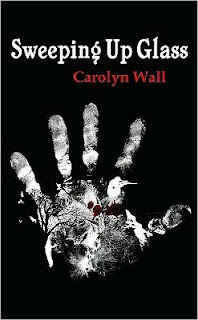STATUS: Heading out for the night but plan to do some much needed client reading in the next couple of nights. Hubby is out of town. Amazing how much more work gets done when that happens.
What’s playing on the iPod right now? SUNDAY MORNING by Maroon 5
Early this year, I realized I was spending in ordinate amount of time talking with editors and in-house marketing and publicity people about my clients’ upcoming releases.
In fact, I was spending so much time doing that, I started wondering when I would have the time to read new material and take on new clients. After all, I’m an agent, not a marketing coordinator.
And that’s why this past March, I hired Lindsay Mergens to be out Marketing Director here at NLA.
Here’s a link to her bio so you can see what a great background she has for this job. However, being a Marketing Director for an agency is not the same as this corresponding title in a Publishing house. What exactly would she be doing? Would she be duplicating Publisher effort by actually doing marketing and publicity? Nope, that’s not what Lindsay does.
So here’s what she does—think of it more like coordinating.
1. Tracking all upcoming releases and doing a timeline of what is being done in-house and when we need to be following up with the author’s assigned publicist about the marketing plan.
2. She works on the marketing plan with all our authors so they have something to say other than “I don’t know what I’m doing with this.” All authors know more than they think they do. She adds these things to the Publisher’s plan and helps to tweak what will be done.
3. Sometimes she gets money out of the Publishers for an author visit that they might not have done otherwise if we hadn’t simply requested it.
4. She is the liaison for the in-house publicist and marketing person assigned to the author.
5. If the author would like to hire an external PR company as well, Lindsay hooks the author up with the right people. She also reviews any PR proposals that an external company might present.
6. She attends meetings with me in New York when we are meeting with the Publishing marketing and publicity people. As she used to be one, she knows exactly what to ask.
7. When the marketing plan is formed and finalized, Lindsay is the point person to see that all things get implemented and that all the info is disseminated to me, to the author, rights co-agents, etc.
8. She helps authors fill out the client Author Questionnaire (which can be a huge deal as that is often the in-house template that will be worked from).
9. When folks contact us about having one of our authors come and speak, Lindsay handles that and coordinates with the publisher,
10. Book Trailers. Marketing Materials and so forth, Lindsay reviews it all, requests changes if necessary or generally helps guide this whole process.
11. Book tours abroad. Lindsay handles it and coordinates with US publisher.
This list could go on and on. In fact, I’m probably leaving out tons of stuff but this should give you an idea of why I would hire someone to do this for the Agency. As the main agent, I’m cc’d on all communications but honestly, I’m not sure how I did without her for so long. It’s a job in and of itself.


